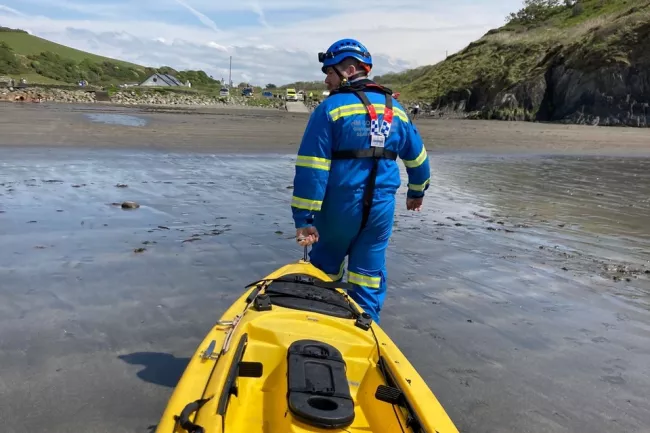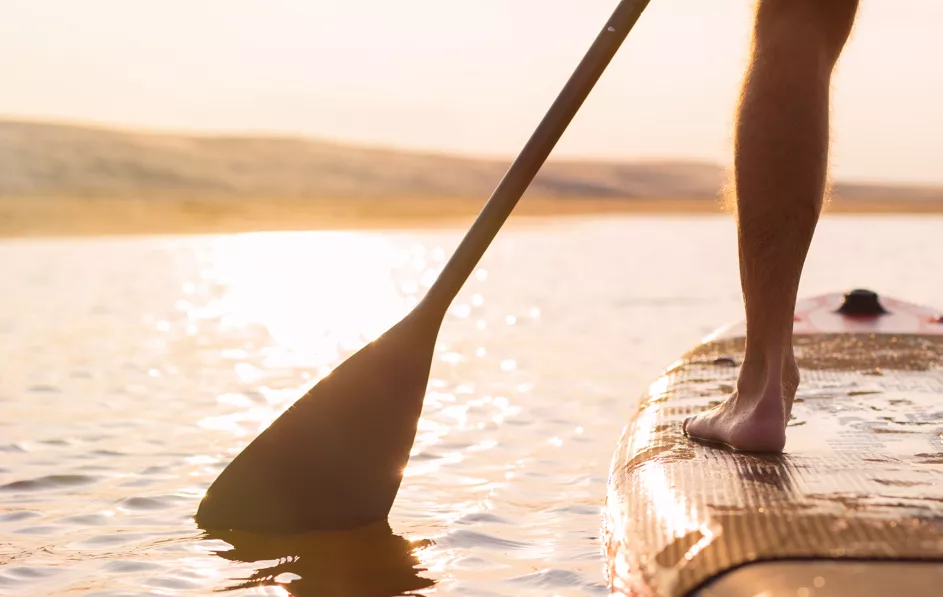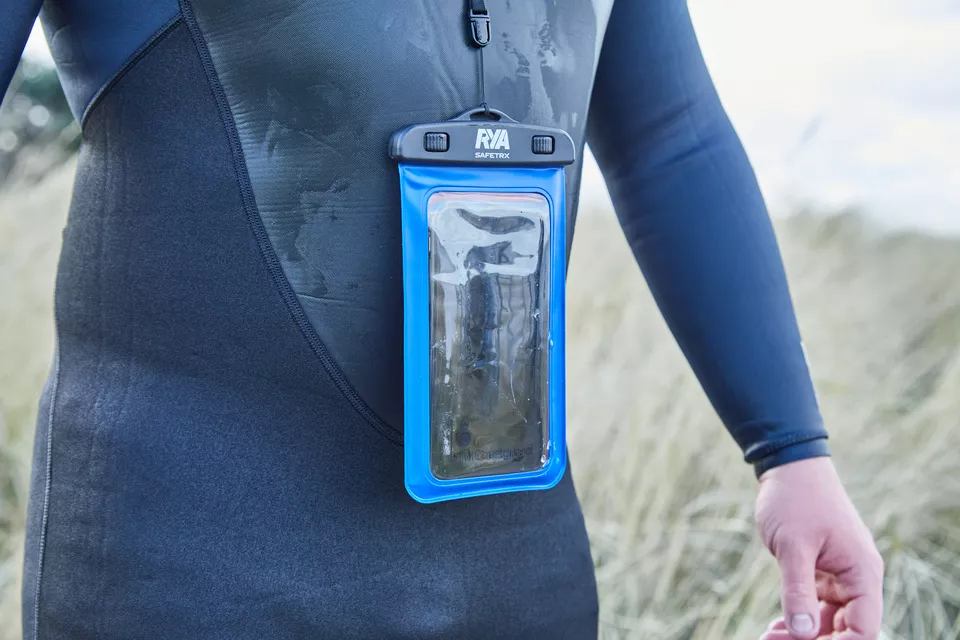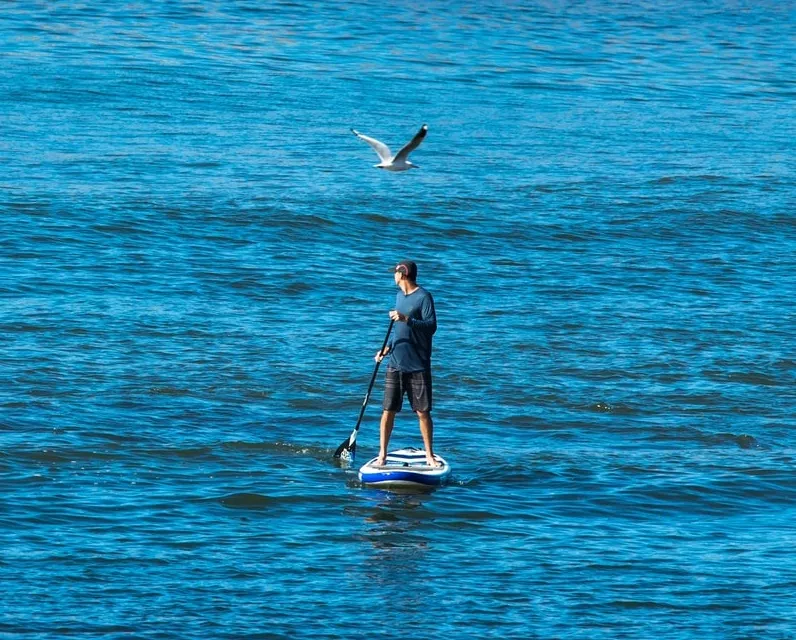The two were in danger of being blown out to sea at Dinas Head but, because they had the right equipment, they were able to call 999 and ask for the Coastguard.
So if you are planning a trip this weekend – or any other time – please take note of our safety advice and ensure that, if the worst happens, you will also be able to call for help.
It had all begun with a sunny day, with husband-and-wife Michael and Jennifer thinking it would be ‘lovely’ to take advantage of the warmth with a gentle paddle along the coast at Pwllgwaelod Beach in Pembrokeshire.
Jennifer had never kayaked before and the plan was to remain close to shore while showing her what to do – but things quickly went wrong.
The two, who live in nearby Fishguard, found themselves unable to prevent the current from pulling them away from shore while Jennifer struggled to control her kayak.
Michael said: “The wind was much stronger than we thought and as soon as we got on the water, it picked up. We were more sheltered on the beach and so it took us by surprise.
“My wife hadn’t been kayaking before and she was struggling to get a hang of the paddling – and we kept being pulled away from land.
“The water became even more choppy as we got pulled beyond Dinas Head and I realised Jen was in danger of being tipped out of her kayak by the swell. We had drifted out of the bay by then.
“So, I got my phone, which was in a waterproof pouch, and I called the Coastguard.
“Fortunately, I had decided to go back for it after leaving the house. If we hadn’t brought that, I don’t know what would have happened.”
In response, coastguard operators sent Fishguard Coastguard Rescue Team and Fishguard RNLI lifeboat. They also alerted other vessels in the area and a yacht went to help too.
Ieuan James, Maritime Operations Operator with HM Coastguard said: “Not only were they wearing the relevant safety equipment including buoyancy aid (lifejacket) and wetsuit, they also had a mobile phone in a waterproof pouch. Because they had the phone, they were able to call 999 and ask for the Coastguard and it saved vital time for us to be able to pinpoint where they were.
“We will always respond to people in need, we just ask that before you set out you have a fully charged mobile phone or radio so that if something does go wrong you can call us.”
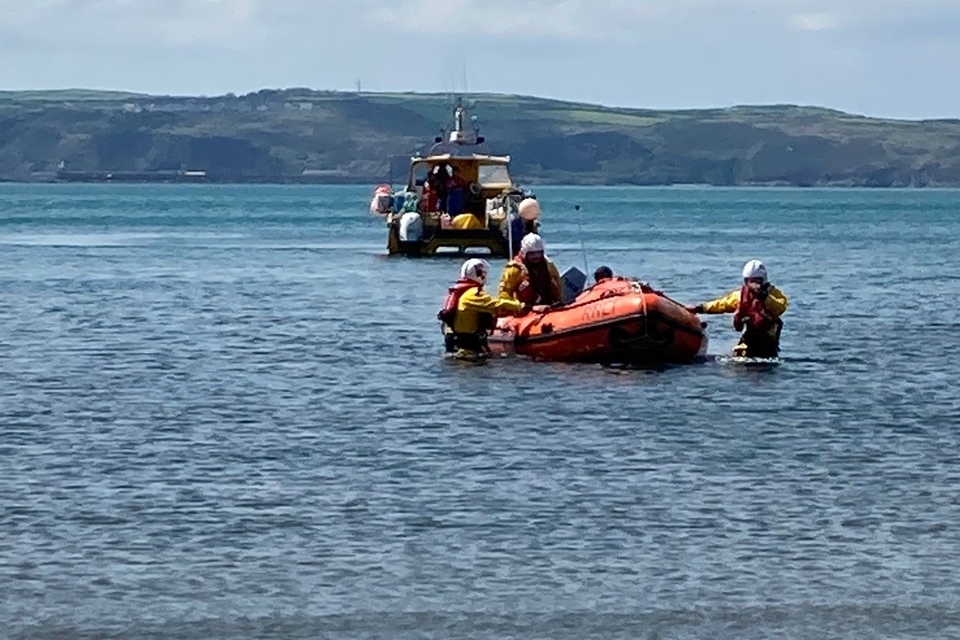
Conditions looked calm from the shore, Michael said, but were much gustier when on the water
Michael said a ‘yellow fishing boat’ came to their aid first, pulling alongside and providing shelter from the elements.
“They were only with us for about five minutes or so before the lifeboat arrived, but it was a big comfort,” he said.
“I have a sailing boat and I know about the dangers of water, check tide times, always wear lifejackets and I have a VHF Radio as well – but I still got caught out. It really can happen to anyone.
“That waterproof phone pouch was a key bit of kit.
“Make sure if you go out on the water this year, you are also prepared so if the worst does happen, you’ll be able to call for help as well.”
Michael added his thanks to the teams involved in their rescue.
It is vital to be prepared before you head to the coast or out on the water:
- firstly, consider if it is safe to go out at all
- make sure you check the weather and tides if you decide it is safe to head out, wear appropriate footwear and clothing for your activity, know the sea conditions and stick to coastal paths
- if taking to the water, always wear a lifejacket and consider investing in a wetsuit
- if you take your dog out with you, keep it on a lead at the coast especially near cliff edges. If they get stuck on a ledge, in mud or swept out to sea, don’t go after them. Most dogs make it back safely, but you might not. People often put themselves in danger in a rescue attempt
- carry a mobile phone so that you have a way of making contact in an emergency and make sure you tell someone where you are going and when you will be back.
- put your mobile phone in a waterproof phone case
- cliffs can be more unstable than they look, and cliff falls or landslides can happen without warning. Take note and adhere to local warning signs. The cliffs along the UK coastline are continuously eroding, stay away from the edge which could be crumbly or slippery and do not climb cliffs as a short cut to the top. Periods of intense rainfall will often make cliff edges more vulnerable
- don’t ever be tempted to stand near the edge to take a ‘selfie’ as it may be the last photo you ever take
